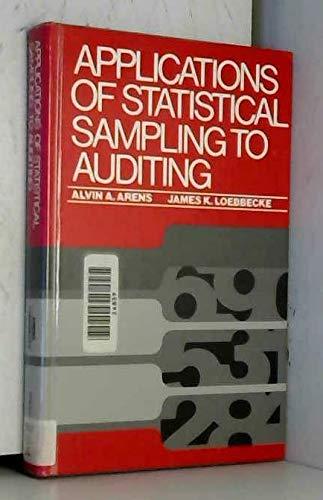Assume the same results as in question 7-9 except that the standard deviation was ($39). Calculate the
Question:
Assume the same results as in question 7-9 except that the standard deviation was \($39\). Calculate the adjusting entry for inventory if inventory is now stated at last year’s ending balance of \($2,000,000\).
Question 7-9:
The auditor took a sample of 250 items based on the answer to question 7-7 and calculated the standard deviation as \($44\). The summation of the inventory values at cost in the sample was \($52,500\). Calculate the point estimate of the inventory and the precision interval. Explain what caused the sample results to be unacceptable.
Question 7-7:
In question 7-4, the population size is 10,000 and the estimated standard deviation is 40. Last year’s recorded book value was \($2,000,000\), and the client believes this year’s will be approximately the same. The auditor decides that a material misstatement of inventory would be \($50,000\) at a 95% confidence level. Calculate the required sample size.
Question 7-4:
Assume that an auditor decides to use unstratified mean-per-unit estimation to estimate the value of inventory in cooperation with a client. The client has not taken a complete physical inventory because of the high cost of doing it. Why is mean-per-unit preferable to difference and ratio estimation in this situation ?
Step by Step Answer:

Applications Of Statistical Sampling To Auditing
ISBN: 9780130391568
1st Edition
Authors: Alvin A. Arens, James K. Loebbecke





